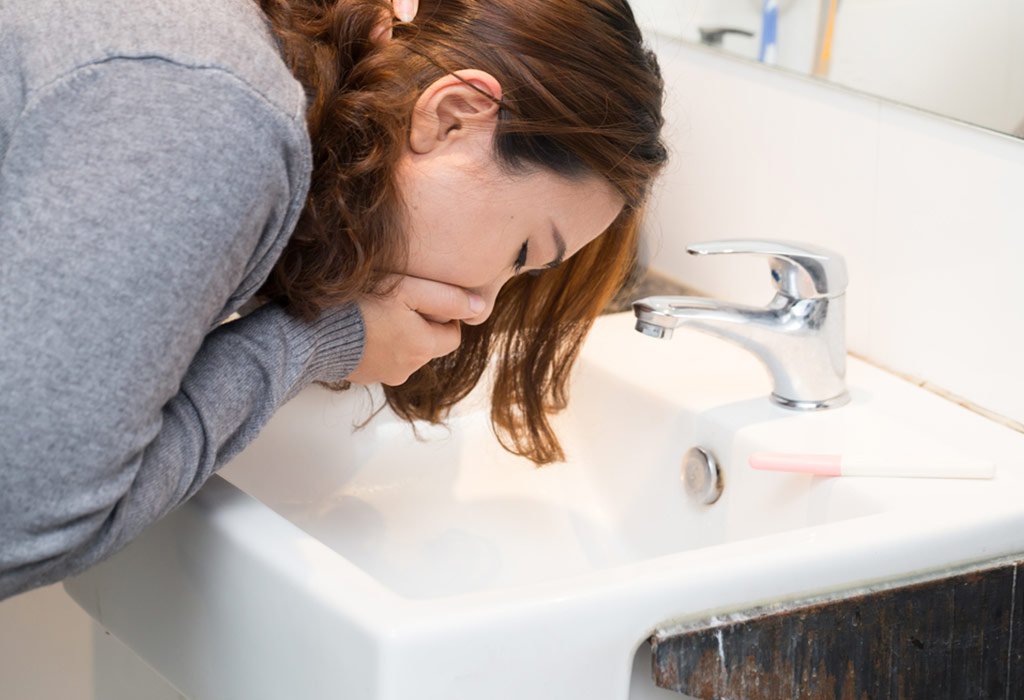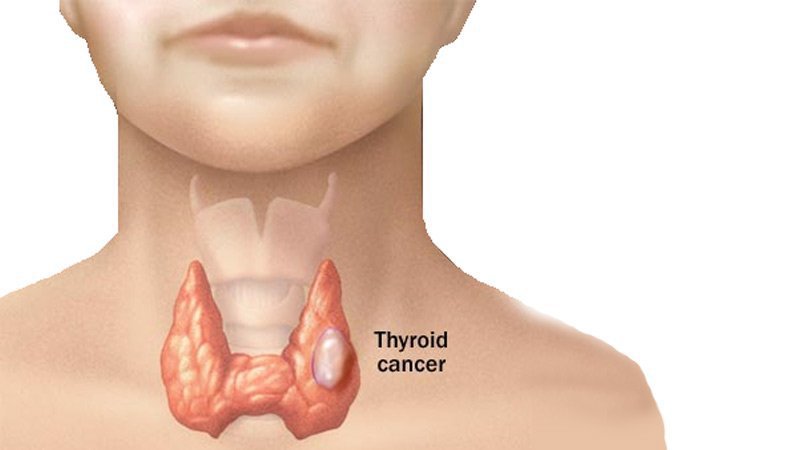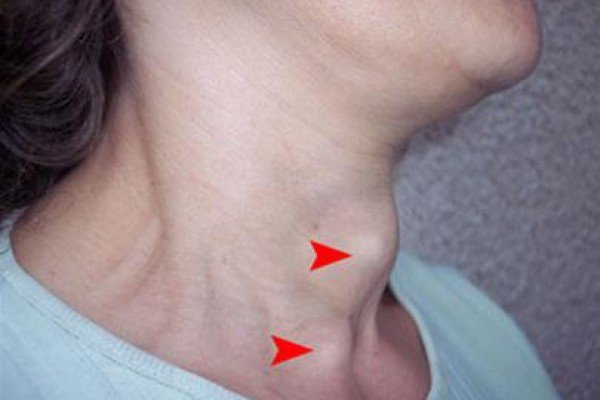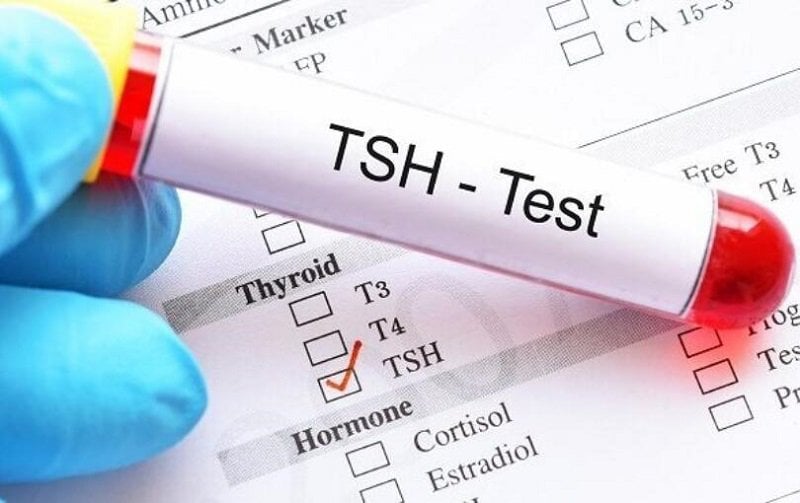Treatment of Basedow with radioactive iodine: Things to keep in mind
Basedow treatment with radioactive iodine has been widely used to treat hyperthyroidism. This therapy, given orally as a solution or capsule, is rapidly incorporated into the thyroid gland and leads to local tissue damage, which suppresses thyroid function over a period of 6 to 18 weeks.
1. What is Basedow's treatment with radioactive iodine?
Basedow's treatment with radioactive iodine is one of the treatments for an overactive thyroid, a condition called hyperthyroidism. Hyperthyroidism can be caused by Graves' disease, in which the entire thyroid gland is stimulated by autoantibodies leading to overproduction of thyroid hormone.
Basedow radiotherapy is essentially the use of a small amount of radioactive material to diagnose, evaluate or even treat disease. Radioactive iodine (I-131), an isotope of iodine that emits radiation, is used for medical purposes. When a small dose of I-131 is swallowed, they are absorbed into the bloodstream in the gastrointestinal tract and gathered from the bloodstream by the thyroid gland, where they will begin to destroy the cells of the thyroid parenchyma. Likewise, radioactive iodine I-131 can also be used to treat thyroid cancer.
Results will be observed that over time, the thyroid gland produces less thyroid hormone. Since no other organ in the body uses iodine, radioactive iodine does not affect any other part of the body.
Because radioactive iodine is given as a single capsule or liquid, treatment for a goiter usually does not require a hospital stay. It can take 6 weeks to 6 months to see the full effects of Basedow's radioactive iodine treatment. During this time, blood levels of thyroid hormone will be regularly monitored and the person may also need to continue taking antithyroid medication until the effect is evident.

Điều trị Basedow bằng iốt phóng xạ được áp dụng phổ biến cho bệnh nhân cường giáp
2. Who should not perform radiation therapy for goiter basedow?
For safety reasons, the following people should not use radioactive iodine to treat goiter:
Pregnant women Women who are breastfeeding Women planning to become pregnant in the next six months People unable to follow radiation safety precautions Young children People with eye complications from hyperthyroidism
3. Preparation steps for radioactive iodine to treat goiter
If you are taking antithyroid drugs, you need to stop these drugs five to seven days before radioactive iodine treatment. Otherwise, don't stop taking a beta-blocker (drugs such as atenolol) if your doctor has told you to.
Avoid drugs and foods that contain high levels of iodine under the guidance of your doctor. Foods high in iodine include iodized salt, seaweed, seafood, and dairy products. Multivitamins often contain iodine, so check the ingredients on the supplement's label. An excess of radiation will remain in the body for several days after radiation therapy for a goiter basedow . Your doctor will advise you on precautions to take after treatment to minimize radiation exposure for others. The radiation may also appear in urine, feces, and saliva. Therefore, paying attention to good hygiene is of the utmost importance.

Trước khi điều trị, người bệnh cần tránh xa hải sản do chứa nhiều iốt
4. Safety measures to be taken after radioactive iodine treatment
Sleep in a separate bed, more than 2 meters away from other adults for three or more days after treatment. For children and pregnant women, the isolation period should be for two weeks or longer.
During the day, keep a distance of more than 2 meters from children and pregnant women throughout the day.
Avoid going to public places or taking public transport such as planes, trains, buses for at least three days.
5. Side effects of radiation therapy for goiter basedow
Treatment of Basedow with radioactive iodine is generally safe. Sometimes neck pain can appear soon after treatment. This doesn't last long and taking pain relievers can help ease this discomfort.
Most people will experience hypothyroidism, ie an underactive thyroid gland, after treatment. A drop in the amount of thyroid hormone in the body can be temporary, but sometimes it can be permanent. This is easily corrected with man-made synthetic thyroid hormones such as levothyroxine.
The risk of thyroid cancer transformation was not observed to be higher in patients treated with radioactive iodine based on radioactive iodine compared with other hyperthyroidism treatments.
Other side effects of radioactive iodine include:
Metallic taste in the mouth: This can last for a few weeks. Nausea: This feeling usually subsides quickly one to two days after treatment. Swollen salivary glands: This can last for a few weeks. The mechanism is because iodine is absorbed by the salivary glands.

Thỉnh thoảng người bệnh thấy buồn nôn sau điều trị Basedow bằng iốt phóng xạ
In summary, for cases of intolerance to antithyroid drugs but want to quickly control symptoms, treatment Basedow with radioactive iodine is an appropriate option. However, for radiation therapy for goitre basedow to be highly effective, patients need to strictly follow the instructions and prevent radiation exposure to those around them.
For detailed advice, please come directly to Vinmec health system or register online HERE.
Bài viết này được viết cho người đọc tại Sài Gòn, Hà Nội, Hồ Chí Minh, Phú Quốc, Nha Trang, Hạ Long, Hải Phòng, Đà Nẵng.






